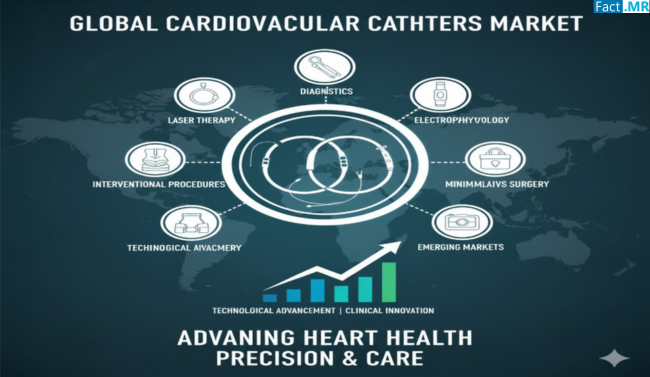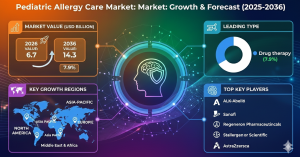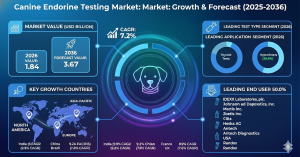The oncology molecular diagnostics market is experiencing remarkable growth as advancements in genomics and molecular biology transform cancer diagnosis and treatment. Molecular diagnostics provide detailed insights into genetic mutations, biomarkers, and tumor profiles, enabling personalized therapies and targeted interventions.
With the rising prevalence of cancer globally, there is a growing demand for diagnostic tools that enable early detection, risk stratification, and treatment monitoring. Oncology molecular diagnostics are increasingly becoming essential in both clinical and research settings, guiding physicians in delivering precision-based oncology care.
Market Overview
Oncology molecular diagnostics involves a range of technologies and assays that analyze DNA, RNA, and proteins to identify cancer-related biomarkers. Techniques such as polymerase chain reaction (PCR), next-generation sequencing (NGS), fluorescence in situ hybridization (FISH), and immunohistochemistry (IHC) are widely used in clinical diagnostics and research applications.
The adoption of molecular diagnostics in oncology is driven by the need for accurate, rapid, and minimally invasive diagnostic tools. Liquid biopsy, for example, allows for the detection of tumor-derived DNA from blood samples, reducing the need for invasive tissue biopsies. These innovations support earlier diagnosis, treatment planning, and real-time monitoring of therapeutic efficacy, enhancing patient outcomes.
Increasing investments in genomic research, growing awareness of personalized medicine, and integration of bioinformatics in clinical workflows are further boosting market growth. Hospitals, research centers, and diagnostic laboratories are expanding their capabilities to incorporate advanced molecular diagnostic platforms.
Regional Insights
North America is a leading market for oncology molecular diagnostics, fueled by advanced healthcare infrastructure, significant research funding, and high adoption of personalized medicine. The region benefits from a well-established network of clinical laboratories and robust regulatory support for innovative diagnostics.
Europe is another key market, driven by rising cancer incidence, supportive healthcare policies, and increasing investment in genomic research. Countries such as Germany, the U.K., and France are witnessing strong adoption of next-generation sequencing and other advanced diagnostic technologies in oncology care.
Asia-Pacific is emerging as a high-growth region due to increasing healthcare expenditure, growing awareness of cancer diagnostics, and expansion of molecular testing facilities. Countries including Japan, China, and India are witnessing rapid integration of molecular diagnostics into routine oncology workflows, supported by government initiatives and medical research programs.
Key Trends & Forecast
Several trends are shaping the oncology molecular diagnostics market:
- Advancements in Next-Generation Sequencing (NGS): NGS allows comprehensive analysis of multiple genetic mutations simultaneously, enabling precise therapy selection and personalized treatment plans.
- Liquid Biopsy Adoption: Non-invasive techniques for detecting circulating tumor DNA (ctDNA) are gaining popularity for early detection, monitoring treatment response, and identifying recurrence.
- Integration with Bioinformatics: AI-driven analysis and bioinformatics platforms enhance data interpretation, providing actionable insights for clinicians and researchers.
- Emergence of Companion Diagnostics: Molecular diagnostics are increasingly paired with targeted therapies to optimize treatment efficacy and reduce adverse effects.
- Collaborative Research and Innovation: Partnerships between diagnostic companies, research institutions, and hospitals are accelerating innovation, product development, and clinical validation.
These trends indicate a market that is becoming increasingly technology-driven, patient-centric, and data-informed.
Applications & End-Use Outlook
Oncology molecular diagnostics are widely applied across clinical and research domains:
- Cancer Screening and Early Detection: Molecular assays help identify high-risk patients and detect cancer at an early stage, significantly improving treatment outcomes.
- Therapy Selection and Personalized Medicine: Genetic profiling guides the choice of targeted therapies and immunotherapies, ensuring precision treatment for individual patients.
- Monitoring and Recurrence Detection: Molecular diagnostics enable continuous monitoring of treatment efficacy and early identification of cancer recurrence, supporting proactive care.
- Hospitals and Clinical Laboratories: Diagnostic laboratories and hospital-based oncology centers are primary end users, focusing on integrating molecular testing into routine workflows.
- Research and Drug Development: Molecular diagnostics support clinical trials, biomarker discovery, and development of new oncology therapeutics.
The growing emphasis on personalized medicine and data-driven oncology is further expanding the adoption of molecular diagnostics globally.
Conclusion
The oncology molecular diagnostics market is poised for significant growth as technological innovations and precision medicine reshape cancer care. By providing detailed genetic insights and enabling personalized treatment strategies, molecular diagnostics are transforming diagnosis, therapy selection, and patient management.
With continuous advancements in sequencing technologies, liquid biopsy platforms, and bioinformatics, oncology molecular diagnostics are becoming a cornerstone of modern oncology. As healthcare providers prioritize early detection, accurate diagnosis, and personalized treatment, the market is expected to continue expanding, delivering innovative solutions that enhance patient outcomes and revolutionize cancer care.



